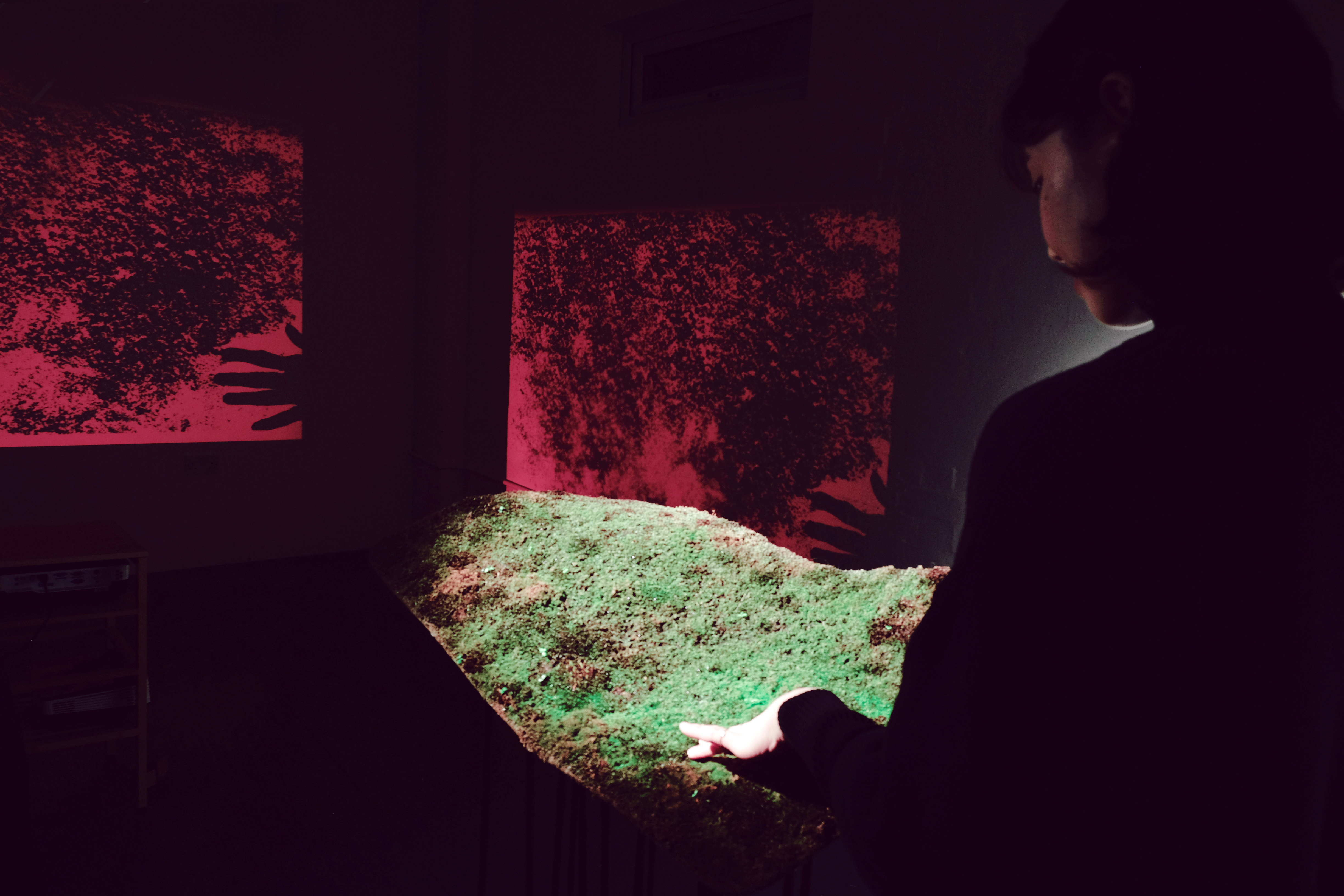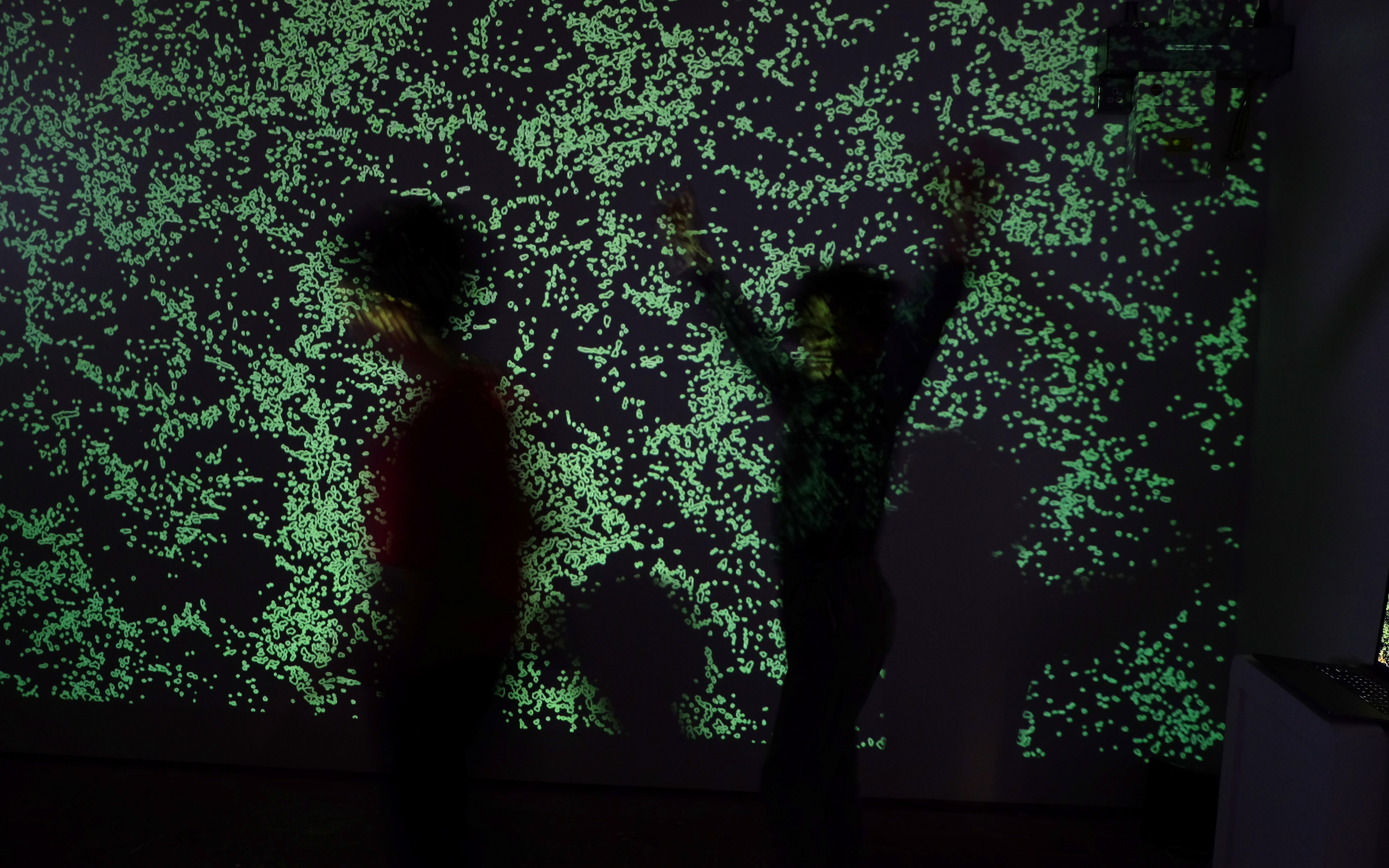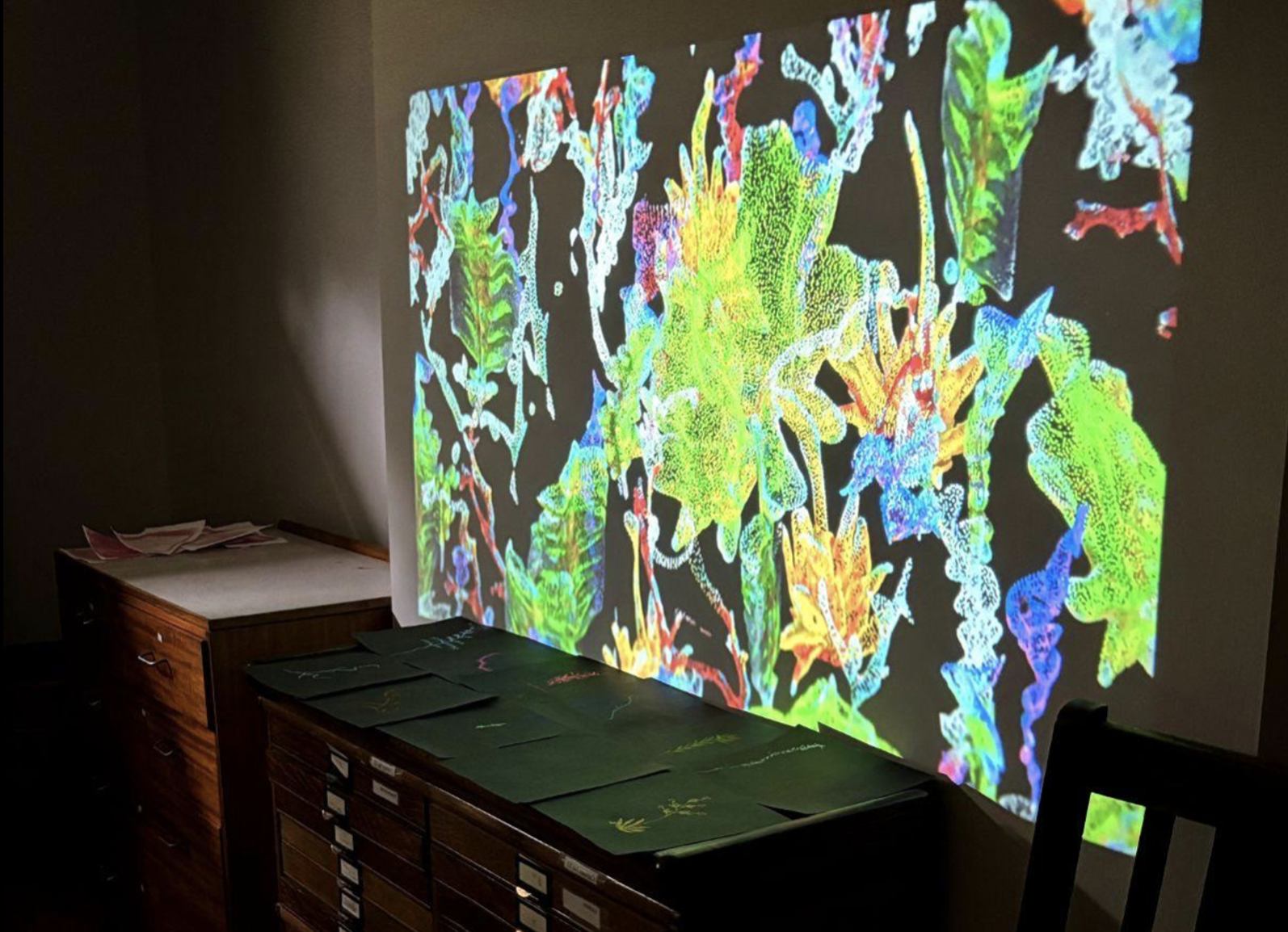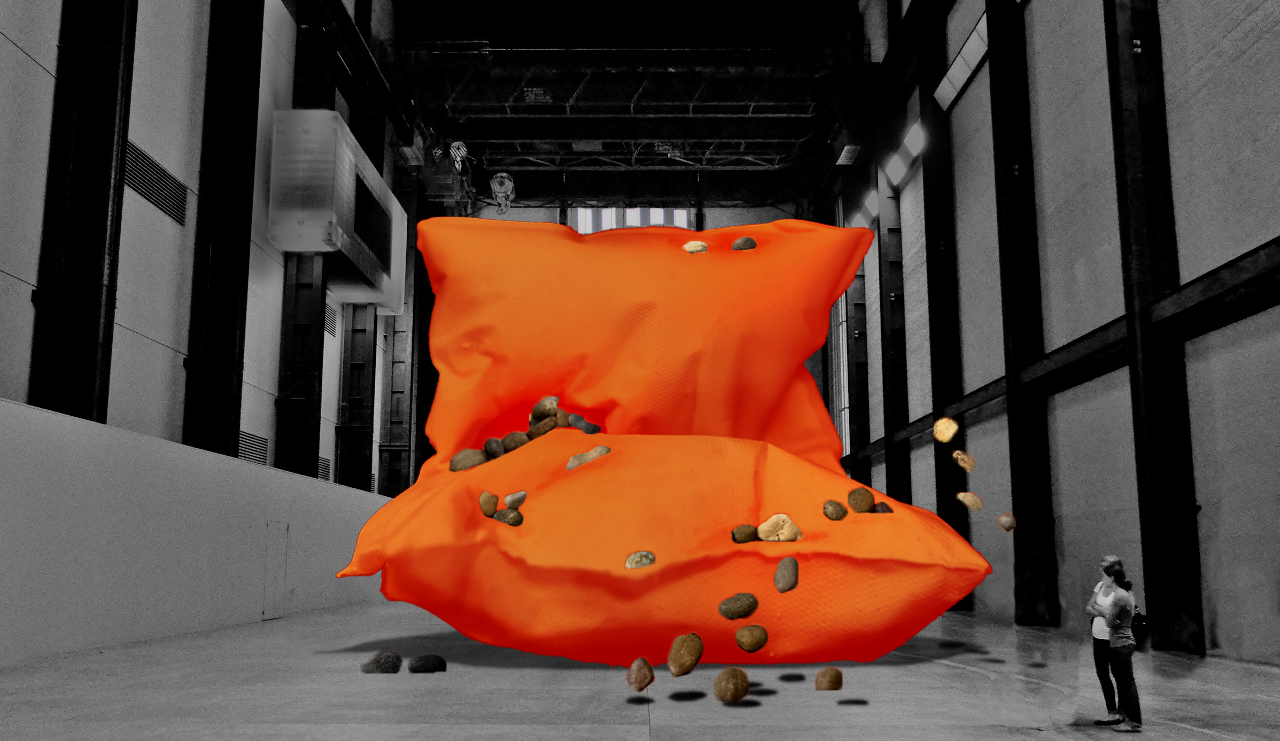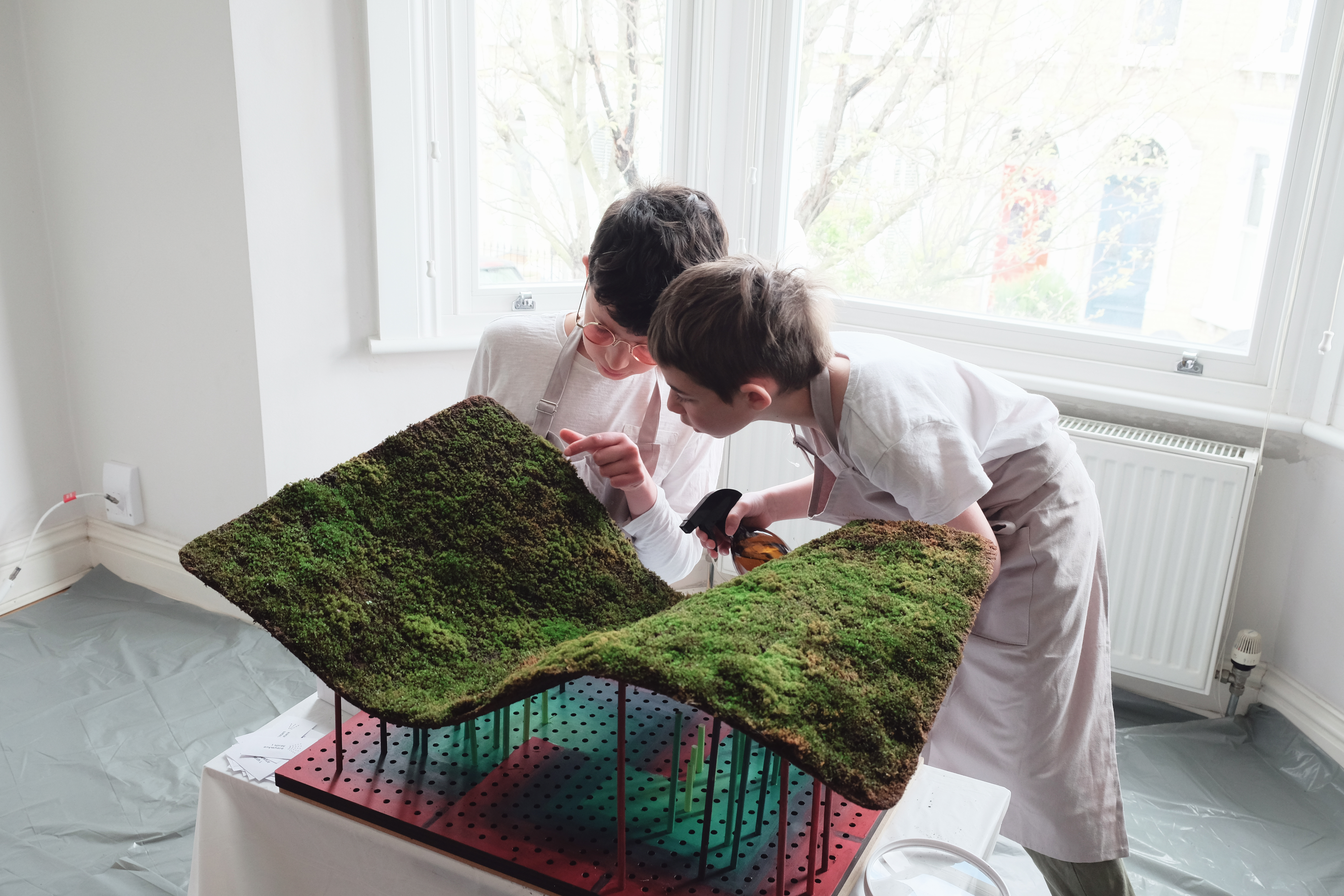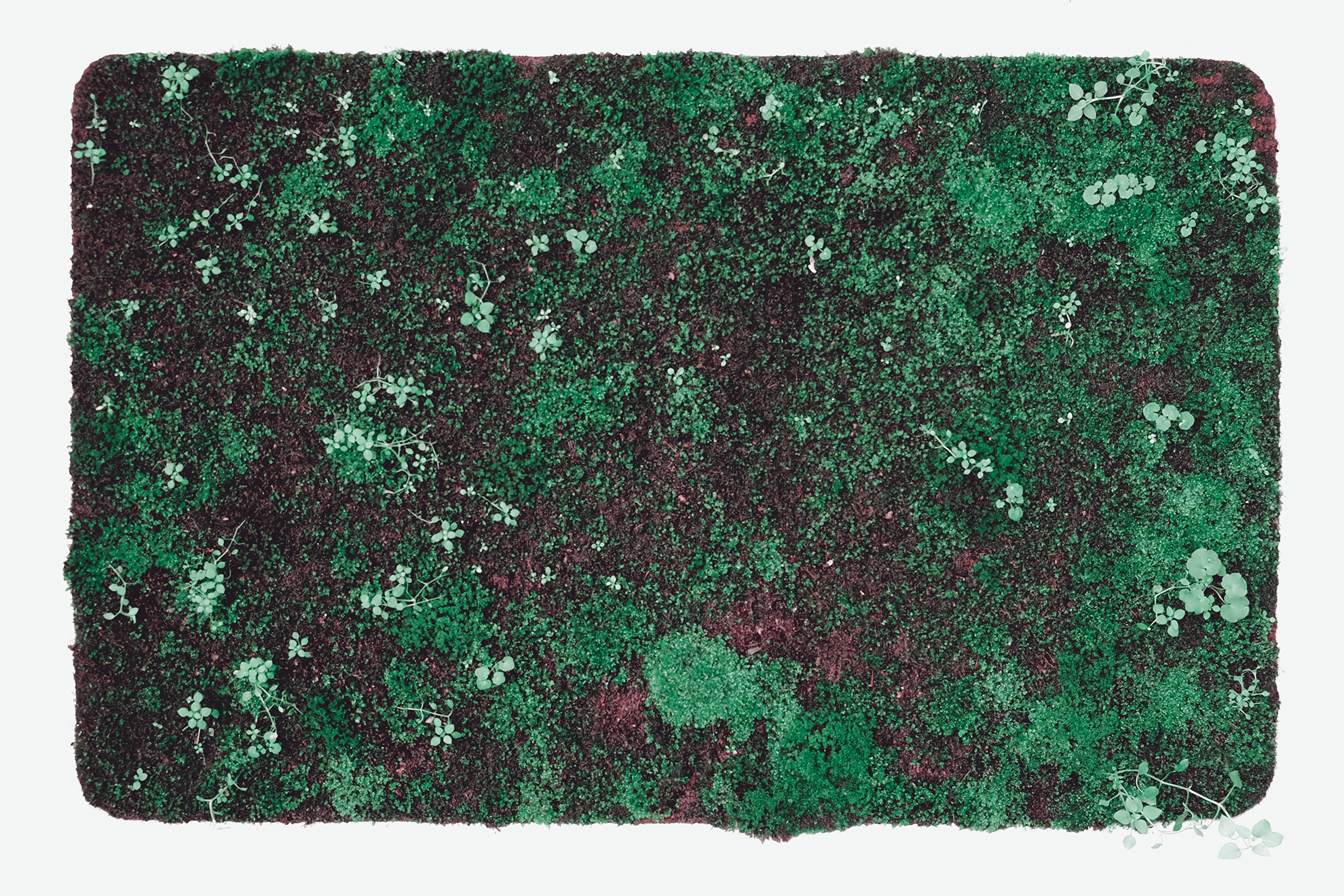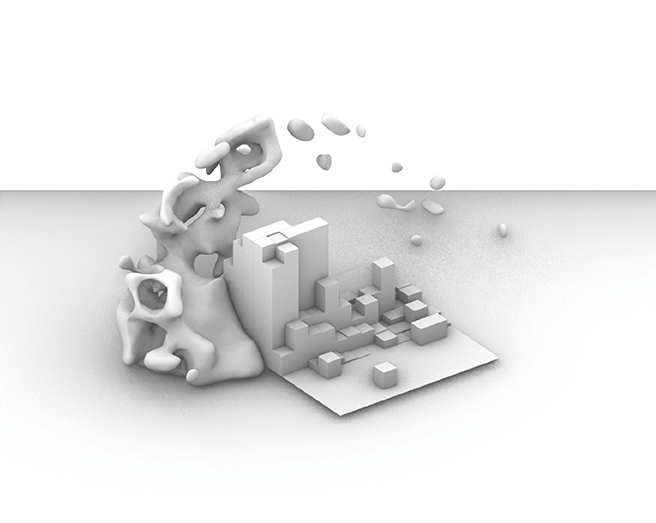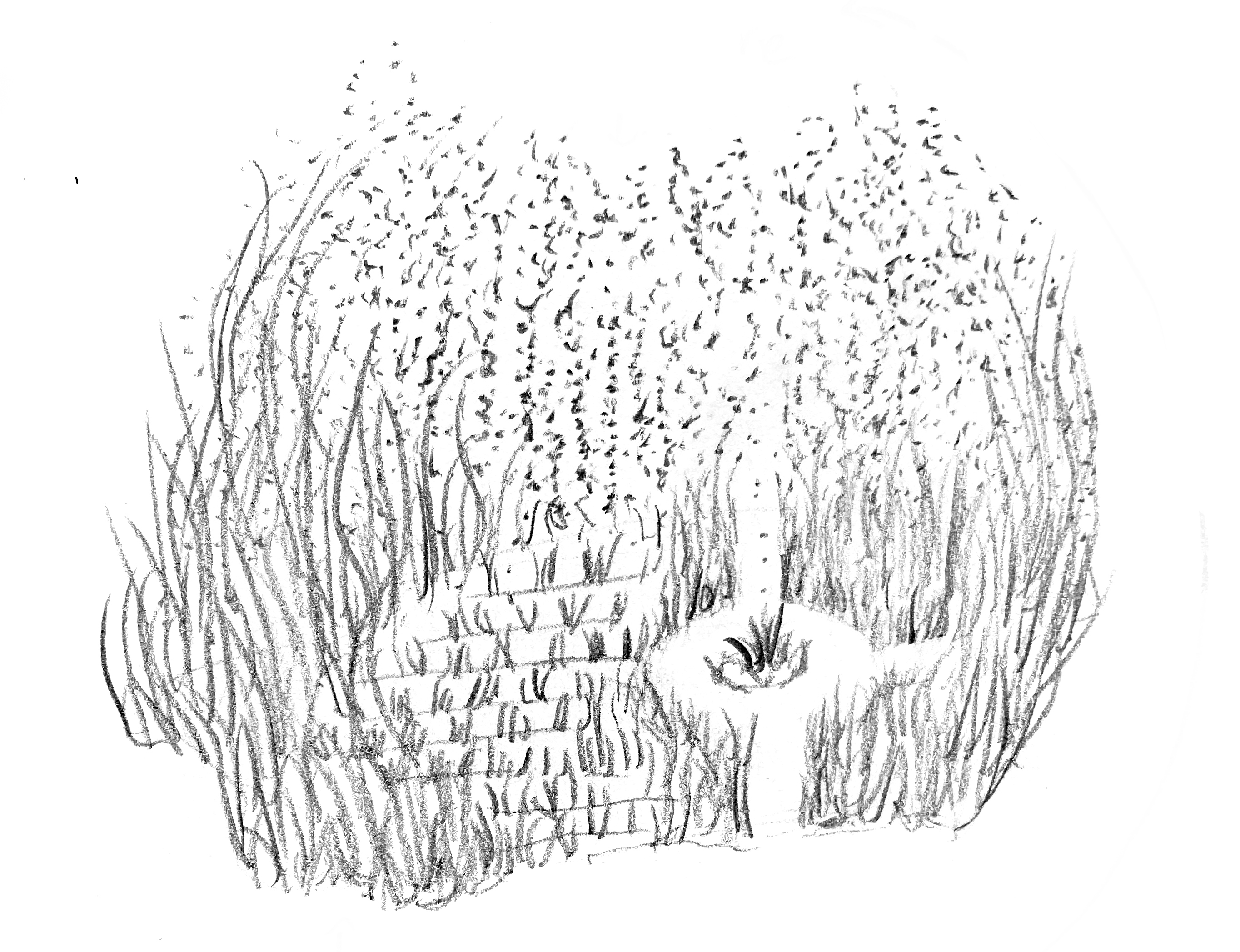Low and Slow: A surveillance over moss
Coming from the dry country of Israel, the presence of moss in the cityscape made me curious. Through my daily journey, I noticed these plants appear and disappear regardless of the seasons. One day they were there. The next, they were gone. I started to explore them. During one of my walks, I spotted a damp doormat with some moss growing on it. I asked the owner if I can adopt it. I have been taking care of it since then.
As part of my endeavour to question what smartness is, I decided to put a surveillance system over an apparently non significant organism, yet one of the first organisms which developed the ability to live on land - the moss. I was wondering which kind of data I can extract from observing it on a long term basis.
It was fascinating to discover the dynamic mechanisms of the moss colonies and its incredible tolerance to stressed conditions. I found that moss colonies could act as a counter model to neo-capitalism.
Mosses are ancient bryophytes, they are simple yet resilient. They are not competitive, they grow very slow and very low, and they ususally grow where other plants can not. Scholars claim that moss is a significant contributor to the ecology of earth [1].
The ability to exist in the most stressed conditions derives from the mosses rapid reaction to the environment, its regulated use of resources, and its unique life cycle in relation to time [2]. The moss's life cycle is not tuned according to hours, days or seasons, but it is synchronized to the amount of available resources.
What if corporations and businesses would be more modest and temperate? What if they would utilize the exact amount of resources they need to maintain activity, without the aim to constantly and endlessly grow
Over activity, overgrowth, over consumption, are all sicknesses of our current civilization. This capitalistic, excess routine, makes the whole ecosystem more vulnerable and not prepared for stressed times, certainly it is not harmonized with environmental changes. The current world crisis of the Coronavirus pandemic created extreme and unique conditions, which might allow the human society to re-examine its values, question the concept of working at offices and for what amount of time, and its definition of ‘smartness’.
What if corporations and businesses would be more modest and temperate? What if they would utilize the exact amount of resources they need to maintain activity, without the aim to constantly and endlessly grow
Over activity, overgrowth, over consumption, are all sicknesses of our current civilization. This capitalistic, excess routine, makes the whole ecosystem more vulnerable and not prepared for stressed times, certainly it is not harmonized with environmental changes. The current world crisis of the Coronavirus pandemic created extreme and unique conditions, which might allow the human society to re-examine its values, question the concept of working at offices and for what amount of time, and its definition of ‘smartness’.
[1] Royles, J., M. J. Amesbury, P. Convey, H. Griffiths, D. A. Hodgson, M. J. Leng and D. J. Charman (2013). Plants and soil microbes respond to recent warming on the Antarctic Peninsula. Current Biology 23: 1-5. http://dx.doi.org/10.1016/j.cub.2013.07.011
[2] M. R. Turetsky B. Bond Lamberty E. Euskirchen J. Talbot S. Frolking A. D. McGuire E.S. Tuittila (2012). The resilience and functional role of moss in boreal and arctic ecosystems, New Phytologist, https://doi.org/10.1111/j.1469-8137.2012.04254.x
[2] M. R. Turetsky B. Bond Lamberty E. Euskirchen J. Talbot S. Frolking A. D. McGuire E.S. Tuittila (2012). The resilience and functional role of moss in boreal and arctic ecosystems, New Phytologist, https://doi.org/10.1111/j.1469-8137.2012.04254.x
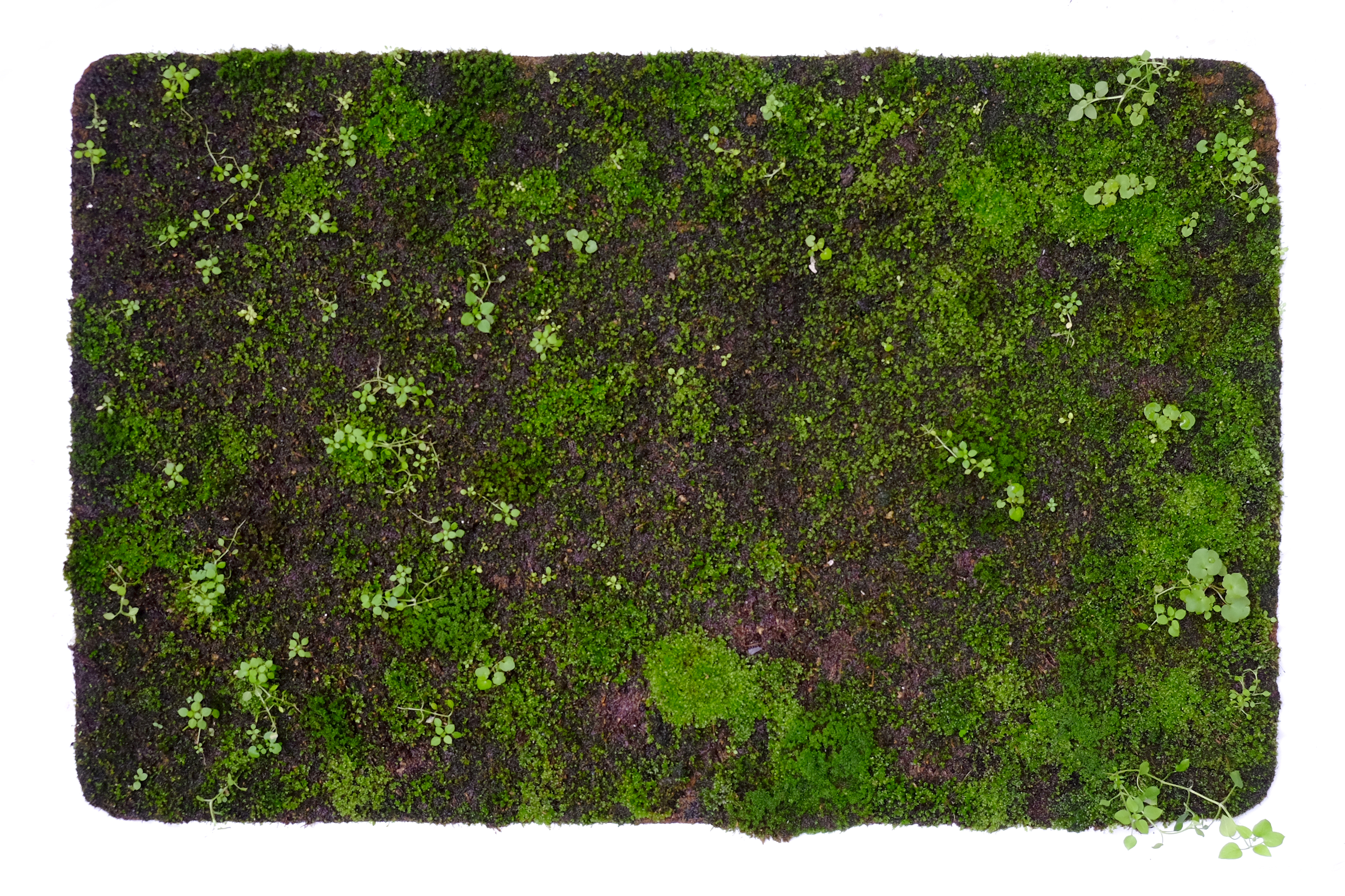
Destabilised Common Grounds
A performative installation and workshop revealing the wisdom of moss colonies. It invites a deep engagement with a fascinating community that we tend to overlook - mosses. In this project, audiences influence the moss’s climate and see the impact of their actions on the moss’s condition in real-time through two large projections.
>More
![]()
![]()
A performative installation and workshop revealing the wisdom of moss colonies. It invites a deep engagement with a fascinating community that we tend to overlook - mosses. In this project, audiences influence the moss’s climate and see the impact of their actions on the moss’s condition in real-time through two large projections.
>More



Data Fossils
A speculative project imagining futuristic archaeology and alien anthropological research. Assuming a site might completely demolish and the only remnant would be digital data from photos, how might a physical restoration look like if a machine is doing an automatic translation from 2D to 3D?
>More
A speculative project imagining futuristic archaeology and alien anthropological research. Assuming a site might completely demolish and the only remnant would be digital data from photos, how might a physical restoration look like if a machine is doing an automatic translation from 2D to 3D?
>More
Inflate
An experiential installation provoking against monopolism and dominance of a tiny oligarchy.
>More
An experiential installation provoking against monopolism and dominance of a tiny oligarchy.
>More
Moss exploration
“It is the artistic mission to penetrate as far as may be toward that secret ground where primal law feeds growth.”
[Paul Klee]
>More
“It is the artistic mission to penetrate as far as may be toward that secret ground where primal law feeds growth.”
[Paul Klee]
>More
niritbin@gmail.com instagram: @niritbin
